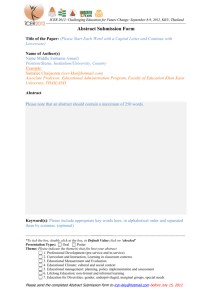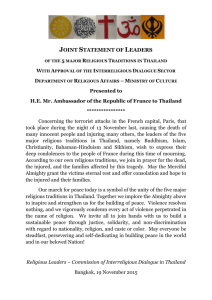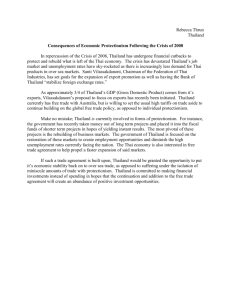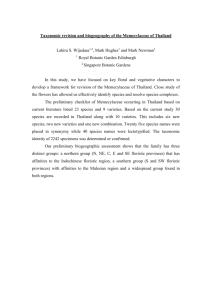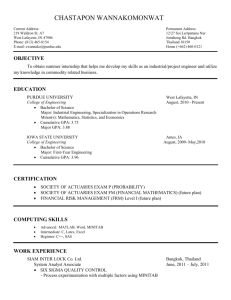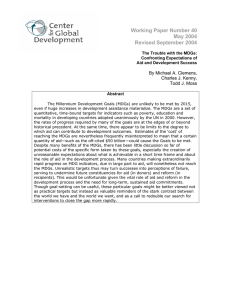Thailand
advertisement
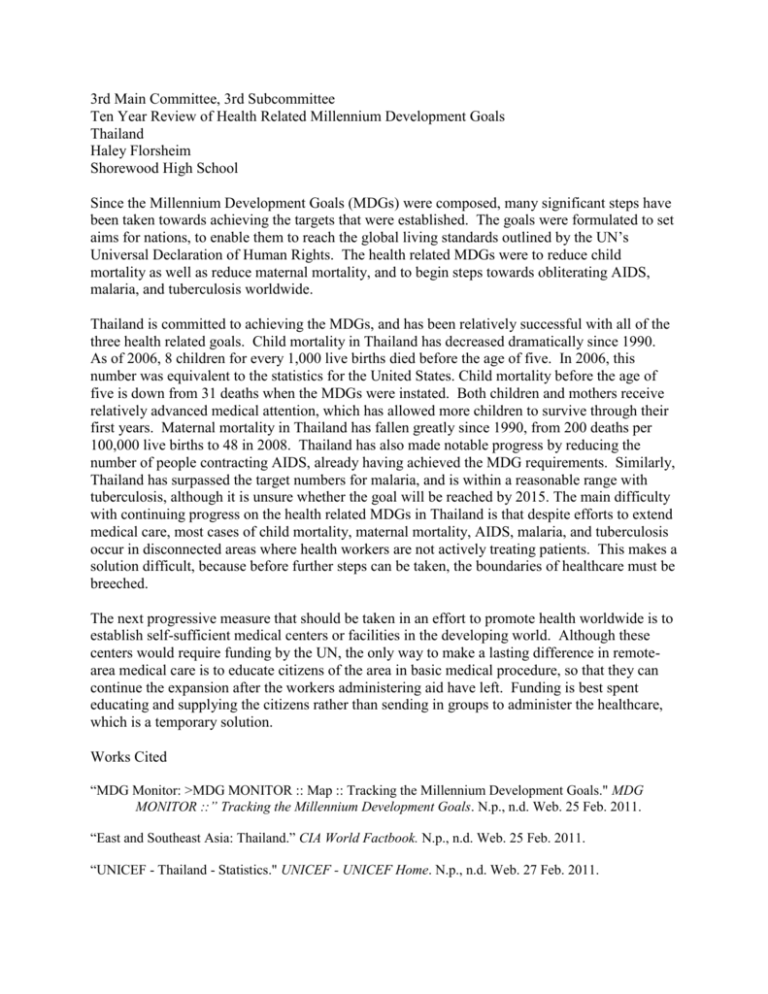
3rd Main Committee, 3rd Subcommittee Ten Year Review of Health Related Millennium Development Goals Thailand Haley Florsheim Shorewood High School Since the Millennium Development Goals (MDGs) were composed, many significant steps have been taken towards achieving the targets that were established. The goals were formulated to set aims for nations, to enable them to reach the global living standards outlined by the UN’s Universal Declaration of Human Rights. The health related MDGs were to reduce child mortality as well as reduce maternal mortality, and to begin steps towards obliterating AIDS, malaria, and tuberculosis worldwide. Thailand is committed to achieving the MDGs, and has been relatively successful with all of the three health related goals. Child mortality in Thailand has decreased dramatically since 1990. As of 2006, 8 children for every 1,000 live births died before the age of five. In 2006, this number was equivalent to the statistics for the United States. Child mortality before the age of five is down from 31 deaths when the MDGs were instated. Both children and mothers receive relatively advanced medical attention, which has allowed more children to survive through their first years. Maternal mortality in Thailand has fallen greatly since 1990, from 200 deaths per 100,000 live births to 48 in 2008. Thailand has also made notable progress by reducing the number of people contracting AIDS, already having achieved the MDG requirements. Similarly, Thailand has surpassed the target numbers for malaria, and is within a reasonable range with tuberculosis, although it is unsure whether the goal will be reached by 2015. The main difficulty with continuing progress on the health related MDGs in Thailand is that despite efforts to extend medical care, most cases of child mortality, maternal mortality, AIDS, malaria, and tuberculosis occur in disconnected areas where health workers are not actively treating patients. This makes a solution difficult, because before further steps can be taken, the boundaries of healthcare must be breeched. The next progressive measure that should be taken in an effort to promote health worldwide is to establish self-sufficient medical centers or facilities in the developing world. Although these centers would require funding by the UN, the only way to make a lasting difference in remotearea medical care is to educate citizens of the area in basic medical procedure, so that they can continue the expansion after the workers administering aid have left. Funding is best spent educating and supplying the citizens rather than sending in groups to administer the healthcare, which is a temporary solution. Works Cited “MDG Monitor: >MDG MONITOR :: Map :: Tracking the Millennium Development Goals." MDG MONITOR ::” Tracking the Millennium Development Goals. N.p., n.d. Web. 25 Feb. 2011. “East and Southeast Asia: Thailand.” CIA World Factbook. N.p., n.d. Web. 25 Feb. 2011. “UNICEF - Thailand - Statistics." UNICEF - UNICEF Home. N.p., n.d. Web. 27 Feb. 2011. "United Nations Development Programme - Thailand." United Nations Development Programme Thailand. N.p., n.d. Web. 25 Feb. 2011.
